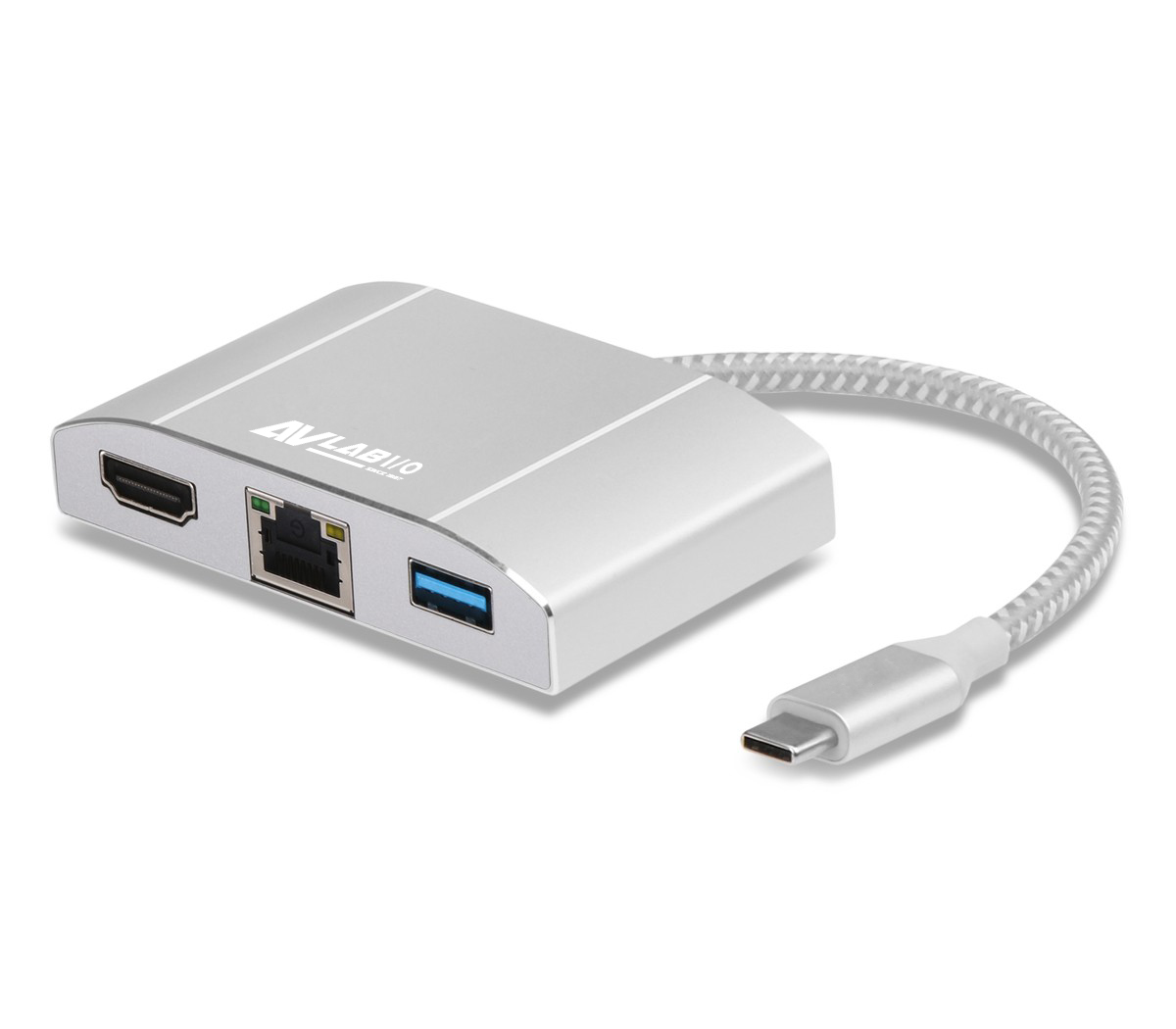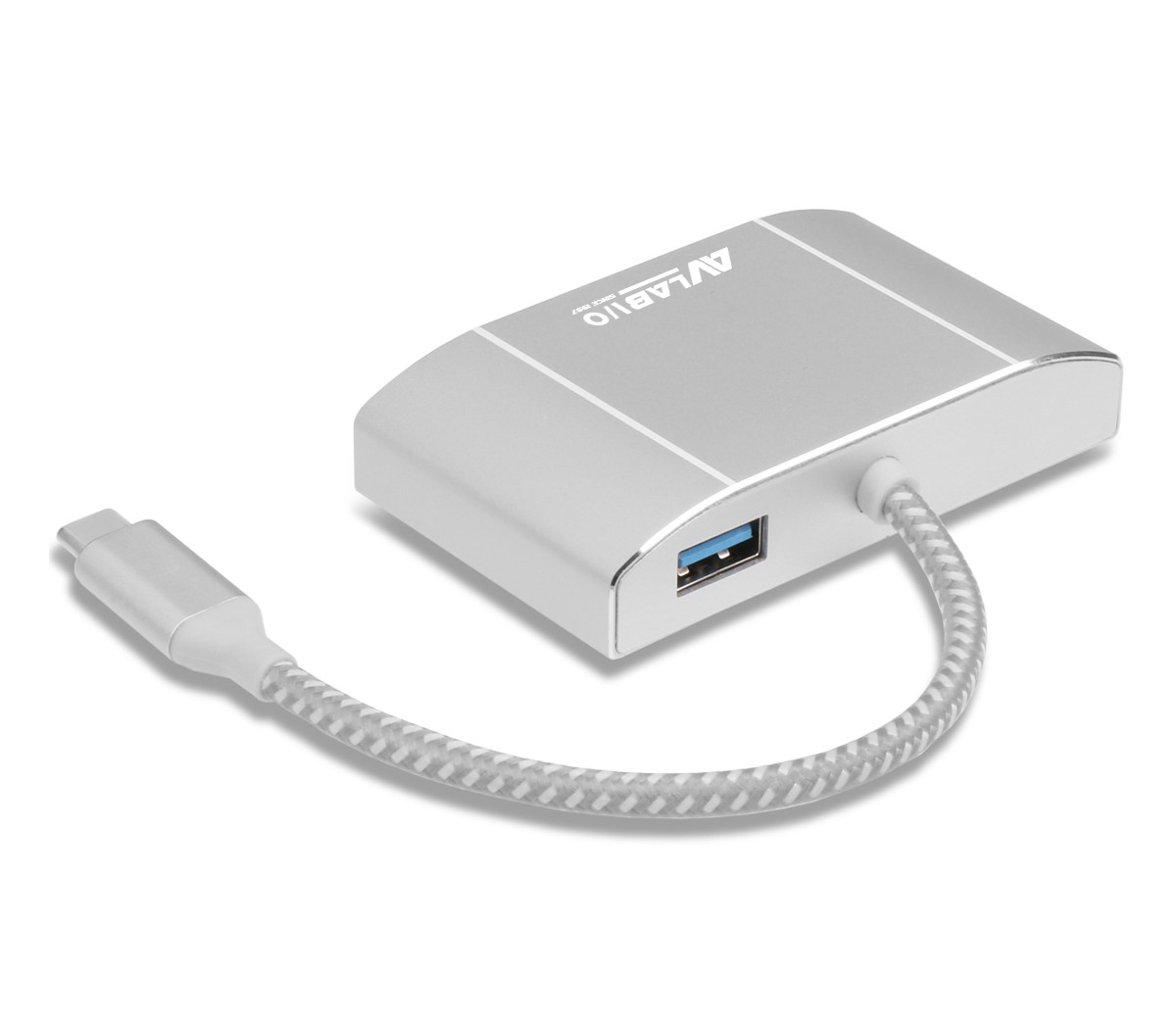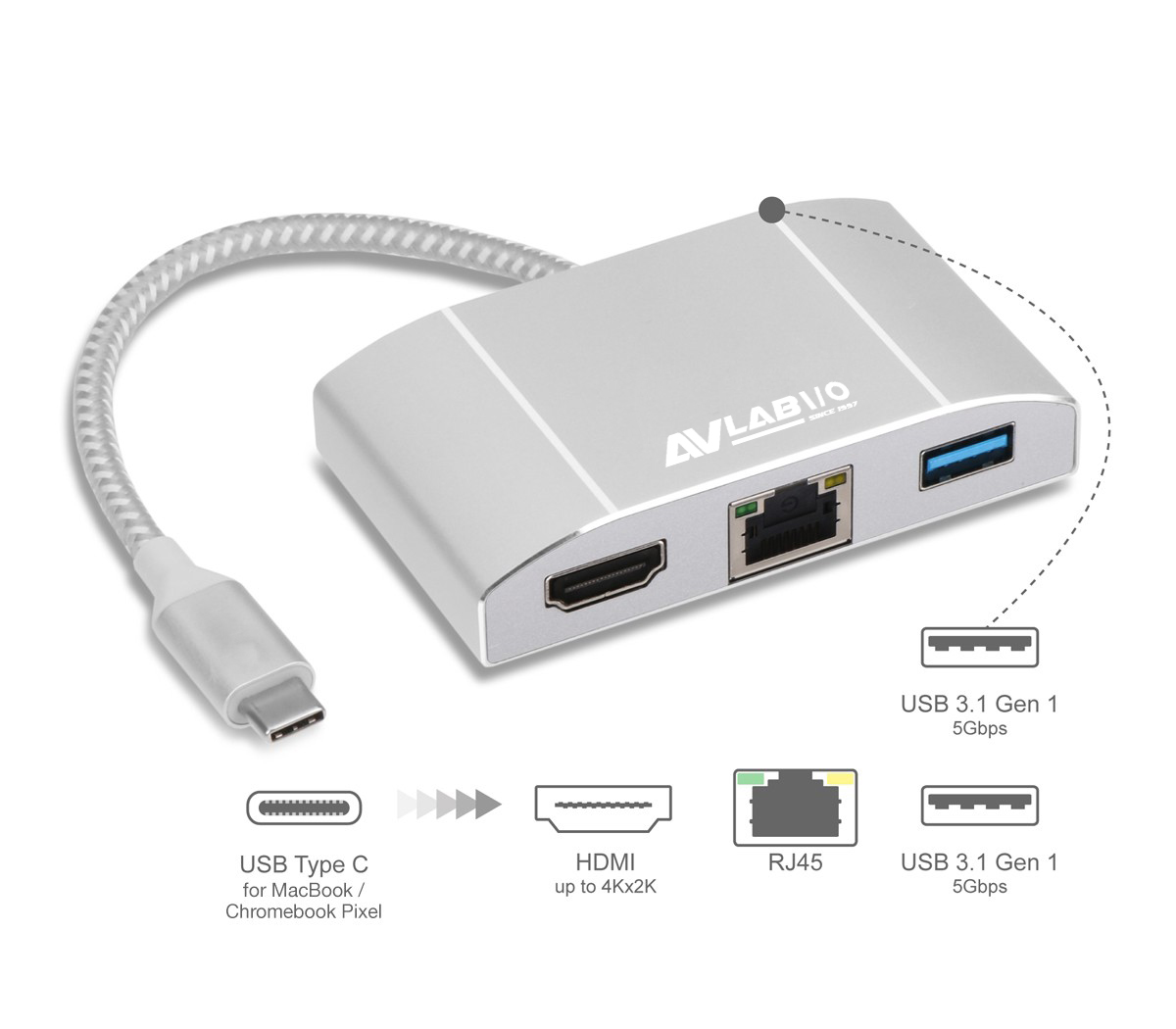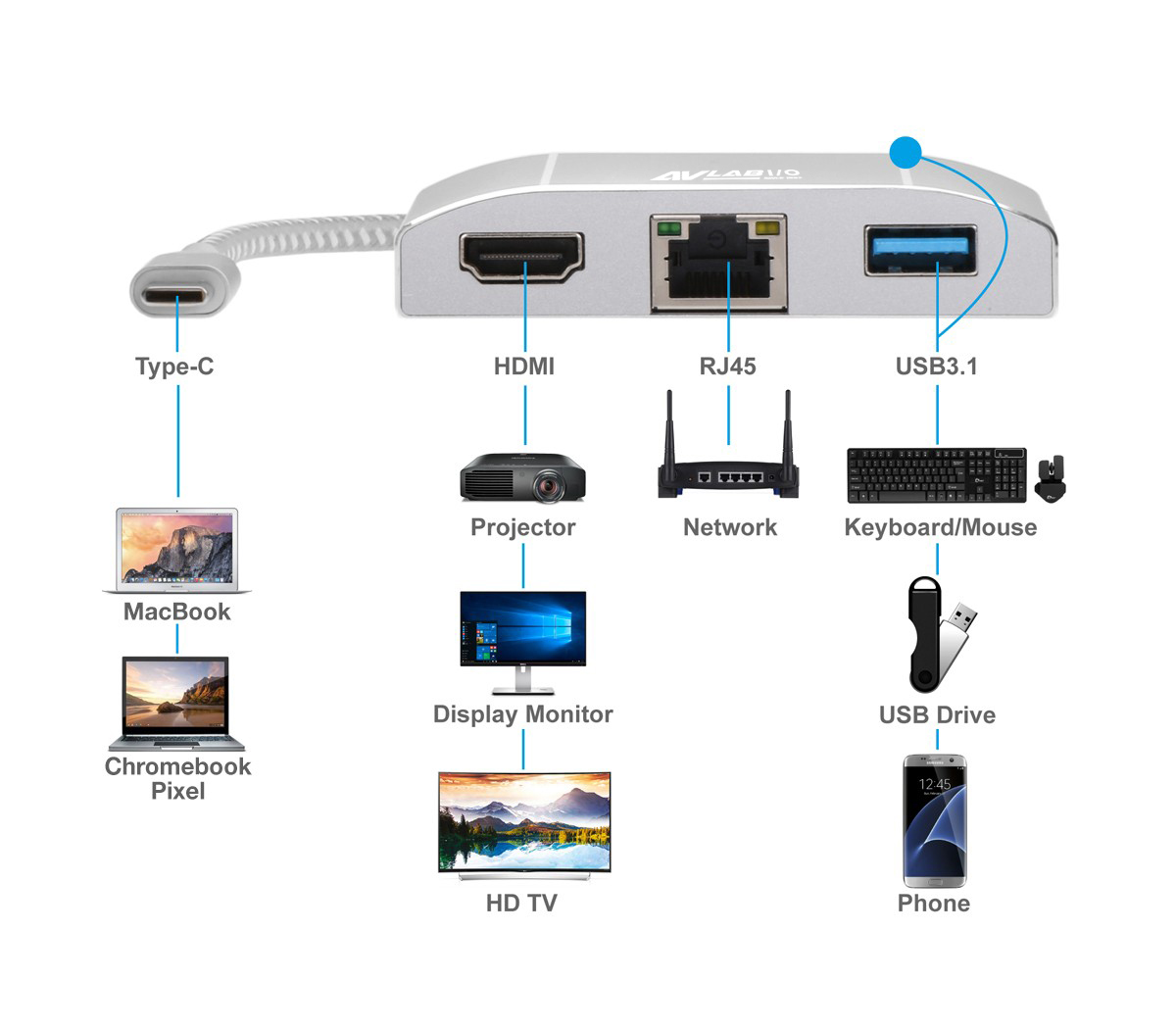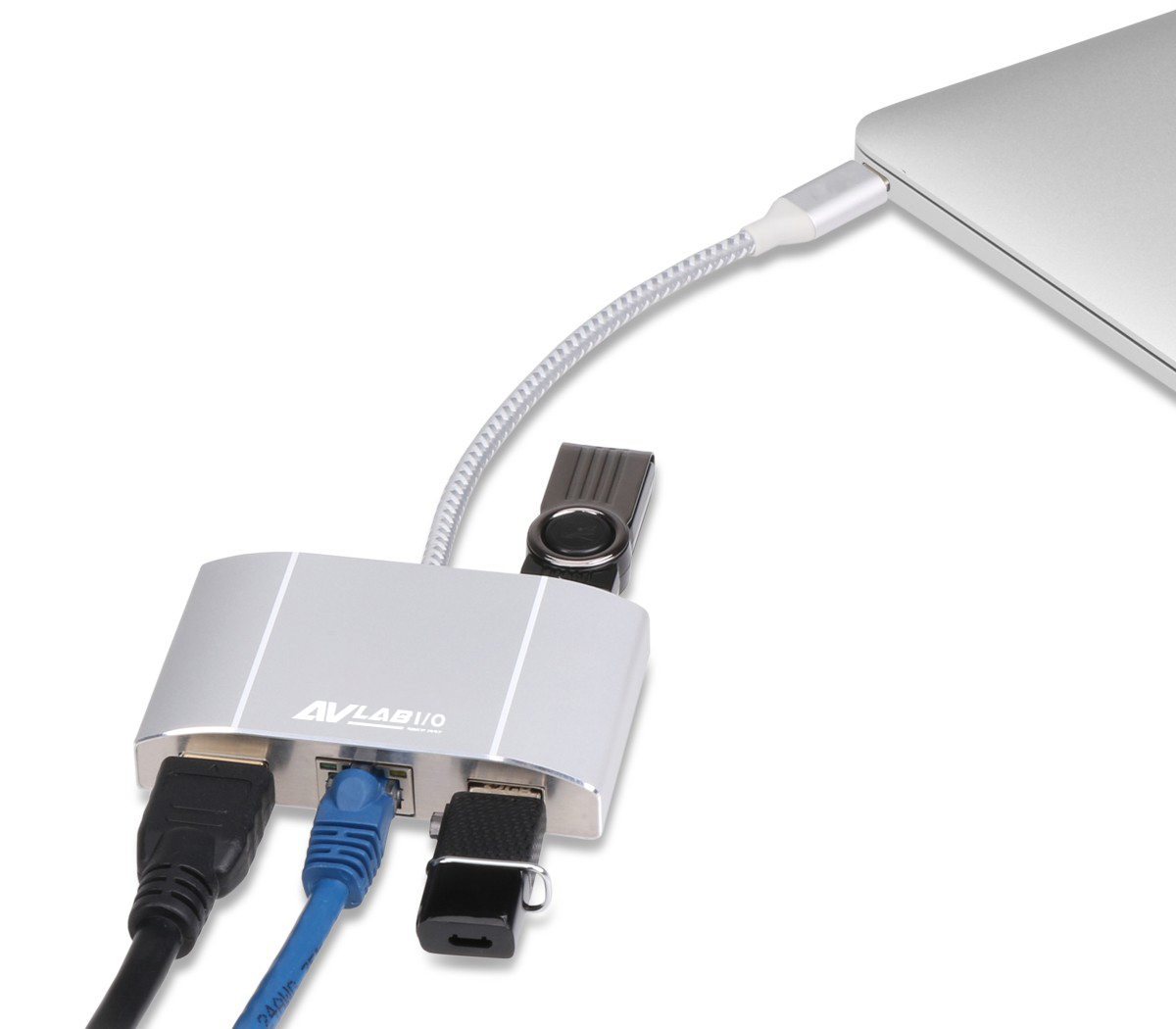- AVLAB-US24-1
- AVLAB USB 3.1 Type-C LAN Hub with HDMI Adapter- 4K 30Hz, Gigabit LAN, 2-Port USB 3.0 Hub, DP Alternate mode, Aluminum
■ Aluminium housing offers durability and excellent heat dissipation for long life and reliable performance ■ Plug-n-Play, no software installation required ■ Gigabit Ethernet delivers high speed data transfer rate up to 1000 Mbps through wired networking ■ Instantly adds one HDMI port, Gigabit Ethernet port and two USB 3.0 ports through USB Type-C (DisplayPort signal enabled) connection to increase efficiency and productivity ■ Supports HDMI video/audio signal with maximum resolution up to 4Kx2K@30Hz ■ Note: The USB-C source connection must contain DisplayPort video/audio signal, aka DisplayPort Alternate/DisplayPort Alt mode, in order for the audio and video signals to pass through the HDMI ■ Pocket size with no external power adapter required provides greater portability ■ USB 3.1 Gen 1 ports support data transfer rate up to 5Gbps for fast data delivery
Eigenschaften
Aluminium housing
offers durability and excellent heat dissipation for long life and reliable performance
Gigabit Ethernet
delivers high speed data transfer rate up to 1000 Mbps through wired networking
Instantly adds one HDMI port
Gigabit Ethernet port and two USB 3.0 ports through USB Type-C (DisplayPort signal enabled) connection to increase efficiency and productivity
Supports HDMI video/audio signal with maximum resolution up to 4Kx2K@30Hz
Note: The USB-C source connection must contain DisplayPort video/audio signal, aka DisplayPort Alternate/DisplayPort Alt mode, in order for the audio and video signals to pass through the HDMI
Pocket size with no external power adapter
required provides greater portability
USB 3.1 Gen 1 ports
support data transfer rate up to 5Gbps for fast data delivery
Plug-n-Play, no software installation required
Spezifikation
Chipset: VL100+PS176+RTL8153
HDMI 1.4 and HDCP 1.4 compatible
Video: HDMI
Resolution: Up to 4Kx2K@30Hz
Compatible networks: Gigabit Ethernet (10/100/1000 Mbps)
USB data transfer rate: Up to 5Gbps (USB 3.1 Gen 1)
Power: USB Bus-powered
Product:
■ Dimensions: 3.11" (W) x 0.63" (H) x 1.85" (D)
■ Weight: 0.14lbs
■ Built-in cable length: 5.91" (15cm)
■ Housing material: Aluminum
■ Color: Silver
Input:
■ 1x USB Type-C, Male
Output:
■ 1x, 19-pin, HDMI, Female
■ 1x, 8-pin, RJ45, Female
■ 2x, 9-pin, USB 3.1 Gen 1, Type-A, Female
Environmental conditions:
■ Operating temperature: 32 to 122 degrees F
■ Storage temperature: 14 to 140 degrees F
■ Relative humidity: 5% to 85% RH (non-condensing)
Certifications/Standards: FCC, CE, RoHS
Warranty: 1 years limited
Country of origin: China
FAQ
- Q: What is USB Type-C?
- USB-C is a type of USB connector that is capable of supporting the following: ■ Data transfer speeds up to 10Gbps, if you use USB 3.1. ■ Bi-directional power delivery up to 100W, if both the USB host connection and the device support it. ■ Alternate modes, which deliver different types of data at different speeds. For example, DisplayPort Alternate Mode (DP Alt Mode). If using Thunderbolt 3 over USB-C, the connection is capable of additional features. For example, Thunderbolt 3 is capable of 40Gbps of total bandwidth. Not all USB-C ports or devices are capable of supporting all of the features listed above, or all of the features at the maximum capabilities. If you require a specific USB-C feature, your USB host connection, cables, and device must all support the feature that you require. For more information about whether your components support specific USB-C features, refer to the information provided by the manufacturers.
- Q: How do I confirm that Windows detects my USB device?
- To confirm that Windows detects your USB device, complete the following: Press the Windows key+R, type devmgmt.msc, and press Enter. In Device Manager, under the appropriate heading, confirm that your expansion card is listed and that there isn't an exclamation mark next to it. For example, a USB device would be under Universal Serial Bus controllers.
- Q: How do I confirm that Windows detects my expansion device?
- To confirm that Windows detects your expansion card, complete the following: Press the Windows key+R, type devmgmt.msc, and press Enter. In Device Manager, under the appropriate heading, confirm that your expansion card is listed and that there isn't an exclamation mark next to it. For example, a USB device would be under Universal Serial Bus controllers.




